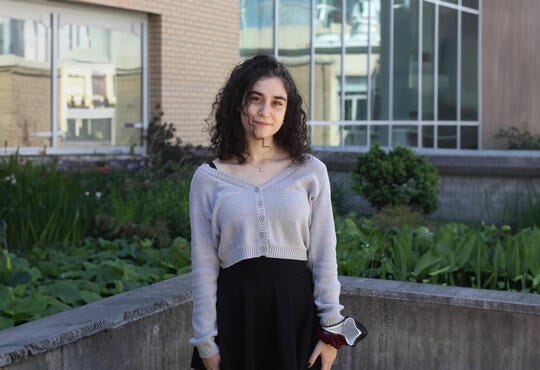The Department of Physics & Astronomy has many faculty that are heavily involved in teaching and always looking for new ways to incorporate best practices into their curriculum. Over the years, we have invited experts in education research to showcase new techniques in teaching and to deliver workshops to allow our faculty members to stay up to date on the pros and cons of each method, and how they can be best employed. As times change, we too must evolve and adapt to the new generation of learners coming through our institution.
Some of the latest research has shown that students in undergraduate science and engineering programs will learn better by being actively engaged. But that doesn’t mean that doing anything other than traditional lecturing will work. To truly create an engaged environment, significant effort has to be put in to build a strong and supportive atmosphere in the classroom. More importantly, recent years have stressed how important it is to have a safe space within the classroom so that we can work towards a more inclusive environment for all of our students.
On December 7, 2023, Prof. Estrella Johnson from Virginia Tech’s Department of Math (Associate Professor and Assistant Dean for Inclusion & Diversity) was invited to share her knowledge in STEM education research and as a champion of EDI within the classroom. Titled “What the Research Says about Active Learning – and What it Doesn’t”, Prof Johnson’s talk addressed pressing issues in STEM education, echoing the sentiments expressed in the 2019 publication by Seymour & Hunter, where they state that “in these courses, there is content overload, incoherent presentation, curve grading, with material pitched too high and inappropriately abstract, a focus on rote learning, boring delivery – in other words, mind-numbing, something to be endured rather than enjoyed – the exact opposite of what you get with inclusive pedagogy and active learning.” This highlights the existence of challenges in STEM teaching, ranging from content overload and a rushed pace of delivery to misalignment between various course elements.
Prof. Johnson’s presentation highlighted the necessity of moving beyond traditional lecture-based teaching methods. Acknowledging the issues presented by Seymour & Hunter as well as many others in education, she emphasized the need for a holistic transformation in STEM pedagogy. The goal is to create an environment where students are not passive recipients of information, but actively engaging with the material to foster a deeper understanding of concepts to gain a strong connection with the subject matter.
One of the key takeaways from Prof. Johnson’s talk was the endorsement of active learning strategies. These strategies aim to empower students by involving them in the learning process through discussions, group activities, problem-solving exercises, and a true hands-on experience (especially for labs). Doing this will hopefully address the issues presented by others, and create a more inclusive and effective space for learning.
The push for active learning is not merely a pedagogical trend, but a general effort to enhance the quality of STEM education and promote a culture of inclusivity. Prof. Johnson's dedication to EDI further emphasizes the importance of creating an educational landscape where all students, regardless of background, can feel seen, heard, and valued. To implement this in a classroom requires mentorship, higher resources, as well as vigilance to ensure that everyone treats each other respectfully.
After Prof. Johnson’s talk and our own internal discussions as a Department, it is evident that the call for change in STEM education is not only justified, but essential for fostering a new generation of students that are equipped with both knowledge and critical thinking skills to thrive in interdisciplinary fields within STEM. The journey towards active learning is not just a shift in methodology, but rather a transformative step towards creating a more equitable and engaging educational experience for all.
In our Department, we have quite a few faculty members who continue to work on deviating from the conventional teaching norm. Examples include collaborative learning sessions, small group worksheets, interactive lecture demonstrations, problem-based learning strategies, peer instruction and evaluation, plus the incorporation of clickers and check-in quizzes to gauge student knowledge throughout the class. We have additional teaching methods that our faculty are working on, some of which we will feature in future articles as we develop them and try them out in our classes!






